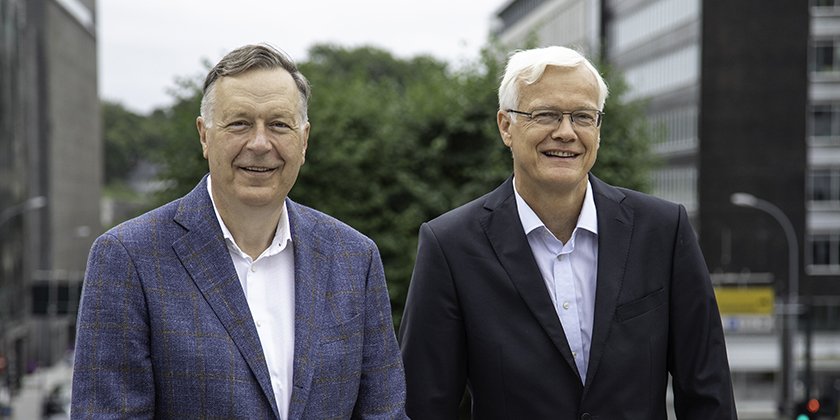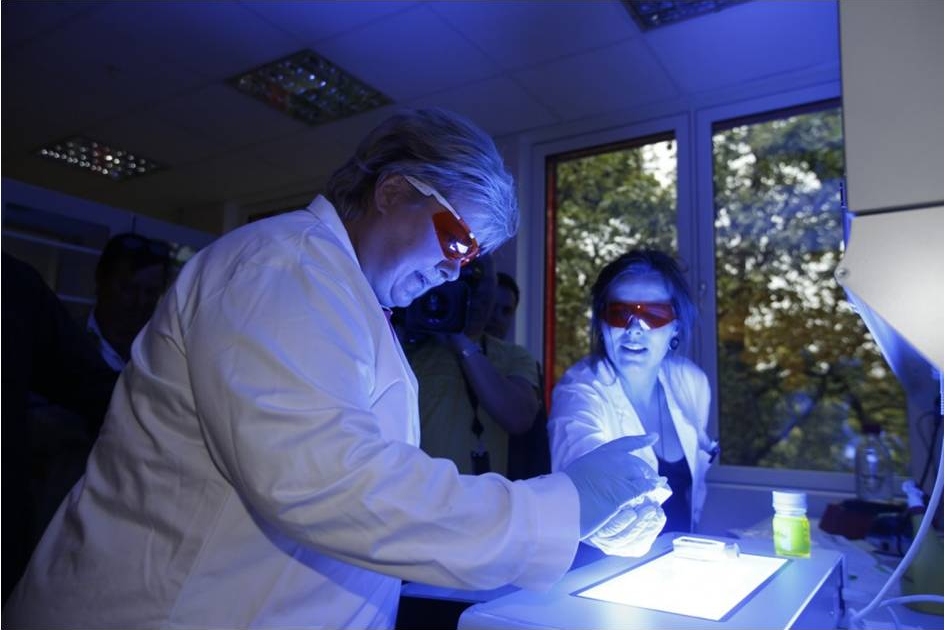Lytix Biopharma signs licensing agreement

Our member Lytix Biopharma has entered into a milestone agreement with Verrica Pharmaceuticals to license the company’s lead drug candidate against skin cancer.
The Norwegian start-up Lytix Biopharma from Tromsø has reached a new milestone. The company has licensed its lead drug candidate LTX-315 against skin cancer to the dermatology therapeutics company Verrica Pharmaceuticals. Verrica Pharmaceuticals will develop and commercialize LTX-315 for dermatologic oncology indications.
The drug is a first-in-class oncolytic peptide-based immunotherapy. Immunotherapy is a type of cancer treatment that mobilises the patient’s own immune system to fight cancer. Peptides are short chains of between two and fifty amino acids that can have many different sources or functions. Peptides hold great potential for both cancer therapy and diagnostics, through the development of anticancer peptides, use of peptides for drug delivery, and cancer targeting.
Clinical studies have shown that the drug LTX-315 from Lytix Biopharma has the ability to kill human cancer cells and induce a specific anti-cancer immune response when injected locally into tumours.
“We are pleased to enter into this collaboration with Verrica, which has significant expertise within the field of dermatology” said Øystein Rekdal, CEO of Lytix Biopharma. “Our lead drug candidate, LTX-315, has shown very promising efficacy and safety signals in cancer patients during Phase I/II studies and we are excited that this partnership with Verrica will expand the applications for LTX-315”
The agreement entitles Lytix Biopharma to up-front payment, contingent regulatory milestones based on achievement of specified development goals, and sales milestones, with aggregate payments of more than $110M, as well as tiered royalty payments in the double-digit teens once Verrica successfully commercializes LTX-315 in dermatologic oncology indications.
Lytix Biopharma and Oslo Cancer Cluster
Lytix Biopharma has been a part of the innovation environment in Oslo Cancer Cluster Innovation Park since the building opened in 2015, utilising both offices and laboratory for research and development.
Oslo Cancer Cluster Incubator has offered the company its services in both private and shared laboratory spaces. In addition, Lytix Biopharma has been active in the animal laboratories at The Norwegian Radium Hospital (a part of Oslo University Hospital), which is located right next to the Incubator.
The researchers in Lytix Biopharma have gained their PhDs in the Incubator, in collaboration with its innovation environment. One of the company’s former researchers is now the laboratory manager in the Incubator.
“This shows how the innovation environments enrich one another in a positive sense, by sharing access to different services and thanks to the power of our geographic location,” said Bjørn Klem, general manager of Oslo Cancer Cluster Incubator.
Lytix Biopharma recently moved out of the Incubator after finishing their main project earlier this year and remains a member of Oslo Cancer Cluster.
Oslo Cancer Cluster Incubator is financed by SIVA, the Norwegian national infrastructure for innovation, consisting of incubators, business gardens, catapult centres, innovation enterprises, innovation centres and industrial real estate.








